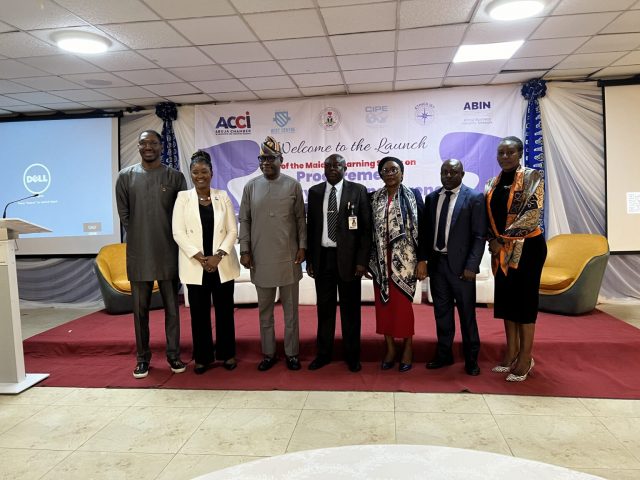In his first address to Nigeria’s National Assembly at the end of last year, the newly appointed chairman of Nigeria’s Economic and Financial Crimes Commission highlighted the high costs of procurement fraud and corruption. Ola Olukoyede, a seasoned lawyer with over 20 years of experience working on regulatory compliance, shared the striking results of the Commission’s recent survey. According to the responses of 50 entities, the Commission discovered that Nigeria had lost up to 2.9 trillion naira – the equivalent of 2 billion US dollars – through procurement fraud between 2018-2020. Internal reports of the Independent Corrupt Practices Commission, Nigeria’s anti-corruption enforcement agency, also reflect the ongoing severity of this issue: procurement fraud accounts for more than half of the country’s total corruption cases.
The consequences of unchecked procurement corruption are evident in Nigeria’s lagging social and infrastructure development. The systemic corruption and subsequent lack of development contribute to rising levels of poverty and inequality, making it difficult for successive governments to deliver on the promise of shared prosperity. The urgency to turn this tide has been high among anti-corruption advocates in government and civil society organizations, but it is also growing among business leaders and investors. This is good news because it takes active private sector involvement to plan and successfully execute fraudulent and corrupt practices in government contracting and procurement.
A fresh perspective on combatting corruption through business-centered and business-led initiatives should be explored by development partners. Encouraging the private sector to develop a stronger sense of business integrity and an unadulterated understanding of the procurement process provides an antidote to the rife culture of corruption.
Introducing Ethics 1st

This is what the Ethics 1st initiative, a business integrity project implemented by the Center for International Private Enterprise (CIPE), sets out to do. Through Ethics 1st, CIPE is catalyzing cooperation among private sector actors to incentivize integrity and accountability – critical corporate values that build resilience to corruption pitfalls. Ethics 1st envisions “a world where businesses are active partners in reducing corruption,” and implements practical measures to promote this collaboration.
Companies across Africa that register with Ethics 1st must demonstrate a verifiable commitment to a culture of business integrity, progressing through the phases of ethical maturity through trainings and compliance certifications. This network opens them up to a new demographic of global partners and local counterparts that seek out low-risk companies with ethical supply chains, creating a virtuous cycle where members can grow their businesses and integrity protocols simultaneously.
Testing the Waters

In December 2023, CIPE committed to supporting the Independent Corrupt Practices Commission’s objective of improving integrity in its procurement pool by promoting business ethics. To kick this off, CIPE has deployed Ethics 1st to the Commission’s community of vendors and suppliers in January 2024 and is supporting CIPE’s Abuja-based business integrity partner, the Abuja Chamber of Commerce and Industries (ACCI), in providing ongoing technical support and assistance to the companies to get them listed on Ethics 1st. Parallel to this hands-on effort, ACCI is engaged in developing and deploying strategic campaigns for procurement integrity and business integrity. These campaigns aim not only to attract more vendors to the program but also to change the overarching narrative about procurement integrity. The Ethics 1st solution is helping over a dozen current and potential vendors strengthen their corporate governance and integrity frameworks to transform their corporate cultures.
Stay tuned for more developments in the coming months. In collaboration with partners such as Accountability Lab Nigeria, CIPE plans to scale this effort methodically to subnational agencies and state-level commissions.
Published Date: February 23, 2024
